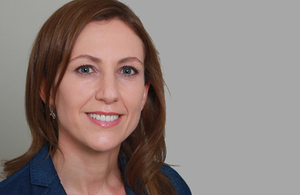Related Research Articles

Development economics is a branch of economics that deals with economic aspects of the development process in low- and middle- income countries. Its focus is not only on methods of promoting economic development, economic growth and structural change but also on improving the potential for the mass of the population, for example, through health, education and workplace conditions, whether through public or private channels.

Simeon Dyankov is a Bulgarian economist. From 2009 to 2013, he was the deputy prime minister and minister of finance of Bulgaria in the government of Boyko Borisov. He has been a vocal supporter of Bulgaria's entry into the Eurozone. Before his cabinet appointment, he was the chief economist of the finance and private sector vice-presidency of the World Bank.

The Centre for Economic Policy Research (CEPR) is an independent, non-partisan, pan-European non-profit organisation. It aims to enhance the quality of policy decisions through providing policy-relevant research, based soundly in economic scholarship, to policymakers, the private sector, and civil society.
Birgit Grodal, was an economics professor at the University of Copenhagen from 1968 until her death in 2004.

New Economic School (NES) is a private institution of higher learning offering undergraduate and graduate programs in economics and finance in Moscow, Russia.

Sergey Maratovich Guriyev is a Russian economist, who is the dean and a professor of economics at the London Business School. Prior to which he as the provost of the Institut d’études politiques in Paris. From 2016 to 2019, he was the chief economist at the European Bank for Reconstruction and Development. He was a Morgan Stanley Professor of Economics and a rector at Moscow’s New Economic School (NES) until he resigned on 30 April 2013 and fled to France. In January 2024, he was announced as the incoming Dean of London Business School, succeeding François Ortalo-Magné.
The Harvard Institute for International Development (HIID) was a think-tank dedicated to helping nations join the global economy, operating between 1974 and 2000. It was a center within Harvard University, United States.

Konstantin Sonin is a Russian economist. He is a professor at the University of Chicago Harris School of Public Policy, research fellow at the Centre for Economic Policy Research (CEPR), London, and an associate research fellow at the Stockholm Institute of Transition Economics. In recognition for his outstanding research in the field of political economy, in December 2015, he was named the John Dewey Distinguished Service Professor of the University of Chicago.

Erik Berglöf is a Swedish economist, currently the Chief Economist of the Asian Infrastructure Investment Bank (AIIB), the Beijing-based multilateral development bank established in 2016 with a mission to improve social and economic outcomes in Asia. In March 2019 Erik Berglöf was appointed to the European Council's High Level Group of Wise Persons on the European financial architecture for development where Berglöf and eight other economists will suggest changes to the EU's development finance structure. In 2017–2018 Erik Berglöf served on the secretariat of the G20 Eminent Persons Group on Global Financial Governance and on the Governing Board of the Institute for New Economic Thinking in New York.
Hélène Rey is a French economist who serves as Professor at London Business School (LBS). Her work focuses on international trade, financial imbalances, financial crises and the international monetary system.

Lucrezia Reichlin is an Italian economist who has been a professor at London Business School since 2008.

Dame Rachel Susan Griffith is a British-American academic and educator. She is professor of economics at the University of Manchester and a research director at the Institute for Fiscal Studies.

María Silvana Tenreyro is a British-Argentine economist who is professor of economics at the London School of Economics and was an external member of the Bank of England's Monetary Policy Committee from July 2017 to July 2023. She was president of the European Economic Association for 2021.
Nancy Qian is a Chinese American economist and currently serves as the James J. O'Connor Professor of economics at the Kellogg School of Management MEDS and a Professor by Courtesy at the Department of Economics at Northwestern University. Her research interests include development economics, political economy and economic history. She is a leading development economist and an expert of autocracies and the Chinese economy.
Nava Ashraf, is a Canadian economist and academic. She is Professor of Economics at the London School of Economics, as well as research director of the Marshall Institute for Philanthropy and Social Entrepreneurship. Her research interests include development economics, behavioral economics, and family economics.
Nicola Fuchs-Schündeln is a German economist and currently holds the Chair for Macroeconomics and Development at the Goethe University Frankfurt. Her research has been awarded the Gossen Prize in 2016 and the Leibniz Prize in 2018. The Leibniz award is considered to be one of the highest scientific awards in all of Germany.
Estelle Cantillon is a Belgian economist. She is currently FNRS Research Director at the Université Libre de Bruxelles, a position she has held since 2016. Cantillon is also an associated researcher at the Toulouse School of Economics. Cantillon currently serves as the Joint Managing Editor at the Economic Journal and is an associate editor at the RAND Journal of Economics. She also holds appointments as a member of WZB Berlin's Advisory Board, research fellow at the Centre for Economic Policy Research, and committee member of Rethinking Belgium, “Matching in Practice” research network, and the European Economic Association. She has previously taught at Harvard Business School, Harvard Kennedy School, and Yale University. Cantillon's professional interests are microeconomics, market design, industrial organization and environmental economics. Her research typically combines theory and data. Currently, her research focuses on carbon emissions markets, the design of electricity wholesale markets, and climate transition policies. She is fluent in French and English and has passive knowledge of Dutch, German, and Spanish.
Yuriy Gorodnichenko is an economist and Quantedge Presidential professor at the University of California, Berkeley.

Mariassunta Giannetti is an economist and a professor of finance at the Stockholm School of Economics. She won the Assar Lindbeck Medal in 2013.
Dina Deborah Pomeranz is a Swiss economist who is currently an assistant professor of applied economics at the University of Zürich. Pomeranz is considered to be one of the most influential Swiss economists.
References
- 1 2 3 4 5 "C.V. of Ekaterina Zhuravskaya" (PDF).
- ↑ Zhuravskaya, Ekaterina. "Ekaterina Zhuravskaya". VoxEU.org. Retrieved 2018-10-11.
- ↑ EffeDesign. "EEA - Birgit Grodal Award". www.eeassoc.org. Retrieved 2018-10-11.
- ↑ "Congratulations to our 2021 Fellows". The Econometric Society. September 22, 2021. Retrieved 2021-10-29.
- ↑ "CEPR Research Fellow Dr Ekaterina Zhuravskaya has won the 2018 Birgit Grodal Award | Centre for Economic Policy Research". cepr.org. Archived from the original on 2018-07-05. Retrieved 2018-10-11.
- ↑ "Ekaterina Zhuravskaya". ERC: European Research Council. 2017-03-20. Retrieved 2018-10-11.